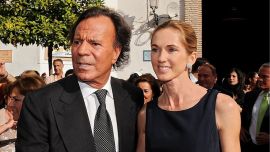Venezuela’s opposition appears close to disintegration after a key leader said he is ditching the main coalition opposed to President Nicolás Maduro, bolstering the socialist leader ahead of elections due next year.
Henrique Capriles, a former presidential candidate, announced he was pulling out of the beleaguered opposition Democratic Unity Roundtable (Mesa de la Unidad Democrática, MUD) coalition after four of its governors pledged allegiance to a Constituent Assembly fiercely loyal to Maduro.
Capriles said he would not stay in the coalition as long as another prominent figure, Henry Ramos Allup, leader of the Democratic Action Party, remained.
Four Democratic Action Party governors pledged allegiance to the controversial Constituent Assembly, which was elected in July in polls called by the unpopular Maduro that were boycotted by the opposition.
"When a person is sick, you need to operate to remove the tumour," said Capriles, who lost to Maduro in 2013, as he called for an overhaul of the MUD coalition.
Capriles's Justice First (Primero Justicia) party appeared likely to follow him out of the coalition after a party vote.
"It's the perfect scenario for Chavismo, allowing it to press ahead with its strategy of obtaining legitimacy for the Constituent Assembly, while the opposition is unravelling," said electoral expert Eugenio Martínez.
He was referring to the political movement launched by Maduro's predecessor Hugo Chávez.
The developments follow a period of soul-searching by the opposition, routed in October 15 regional elections by Maduro's socialists who swept the vote in 18 of Venezuela's 23 states.
Maduro had warned ahead of the polls that elected governors would have to be sworn in before the Constituent Assembly, which the opposition has consistently refused to recognise.
The Assembly has been handed sweeping powers, including over the opposition-dominated Parliament, and has been condemned internationally as a naked power grab by Maduro.
Despite the opposition saying it would not give in to government "blackmail," four of the five opposition governors-elect said they had decided to submit to the inevitable and take the oath before the Assembly.
Maduro met Tuesday with three of the four governors at the centre of the controversy, saying "a new era of co-existence, harmony and cooperation has started with an important sector of the opposition."
Ramos Allup said the four had "exiled themselves" from his party. However, Capriles accused him of "washing his hands" as nobody in the party moved a finger without the veteran leader's approval.
"The decision will deepen divisions and potentially cause a rupture of the MUD," said Risa Grais-Targow, Latin America director for Eurasia political consultancy.
"It will also provide Maduro with additional incentives to accelerate the timelines for local and presidential elections," with a growing likelihood that Ramos Allup will be the only opposition figure permitted to run for president, she said.
Implosion. Venezuela-based political scientist Luis Salamanca told AFP the government was on track to "seize power indefinitely, which means destroying its main political enemy. MUD may be imploding."
Another main component of the MUD, Leopoldo López’s Popular Will (Voluntad Popular, VP) condemned the oath as a "betrayal" and said it would not participate in the municipal elections.
"The MUD has lost is usefulness for Venezuela and has to re-think itself toward a new alliance," said Popular Will’s Freddy Guevara.
The four opposition governors in the eye of the storm defended their decision.
"We are assuming the political cost of defending our electors' votes," said Laidy Gómez, governor of the western state of Tachira.
She was speaking to reporters in a hotel after the MUD-controlled assembly banned them from using its headquarters.
Electoral expert Martínez predicted the move would further distance the MUD from its support base, already discouraged after failing to unseat Maduro in four months of violent protest earlier this year that left 125 people dead.
"What a way to disenfranchise millions of people who were expecting resistance," said businesswoman Margarita García in the Tachira regional capital of San Cristóbal. "It means political death."
Businessman Gendrick Parra, 38, said the one holdout opposition governor, Juan Pablo Guanipa from the oil state of Zulia, would eventually have to take the oath of allegiance before the Constituent Assembly.
"The government is gaining more ground every day. It has reached the point where people are disappointed and no longer want to get out and vote," said Parra, speaking in Zulia's capital Maracaibo.
Evelinda Villalobos, a 55-year-old insurance broker in Maracaibo, said Guanipa, whose future will now be decided by the Constituent Assembly, is the only governor who has the "will" to face down the government.

























Comments